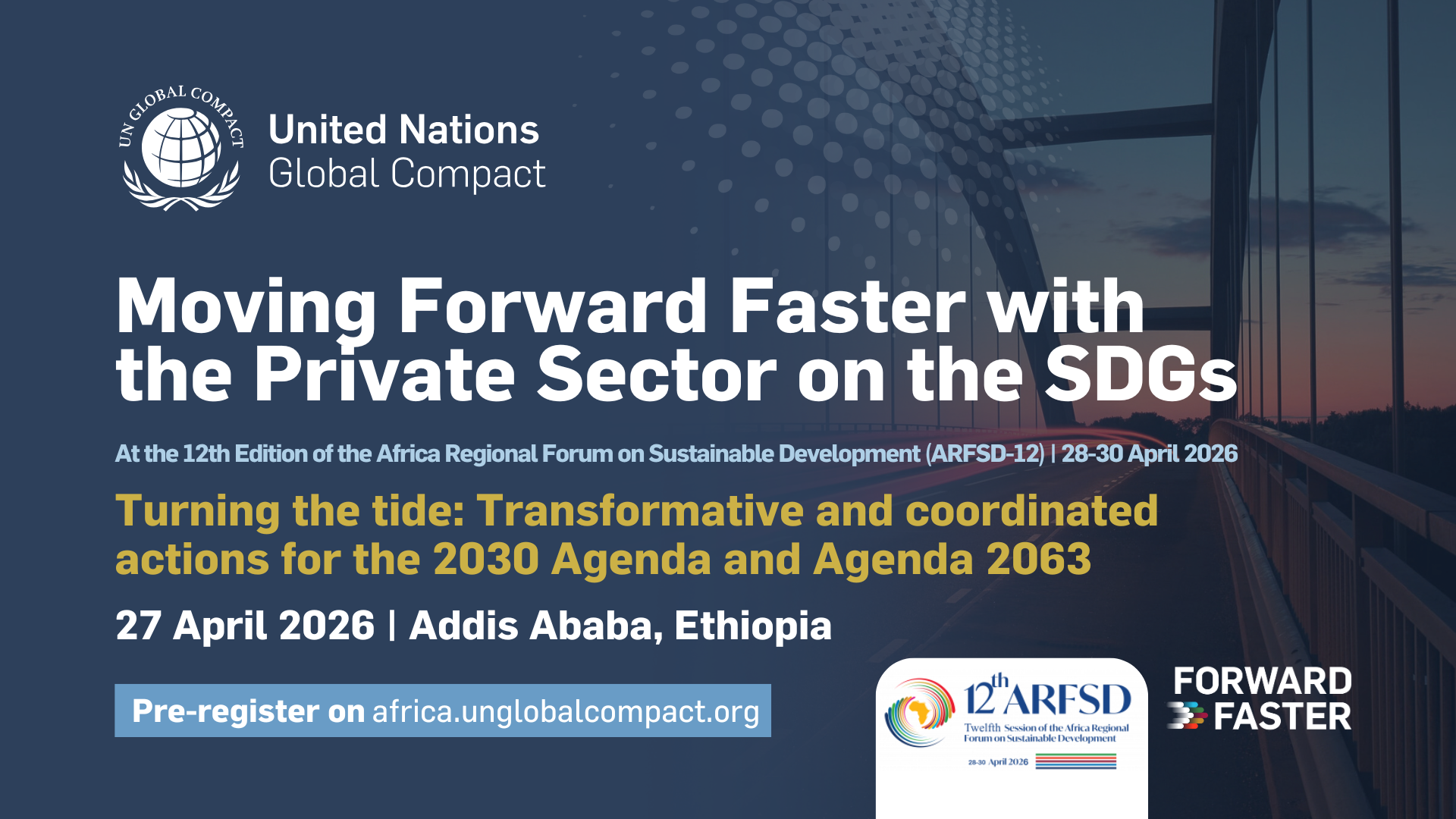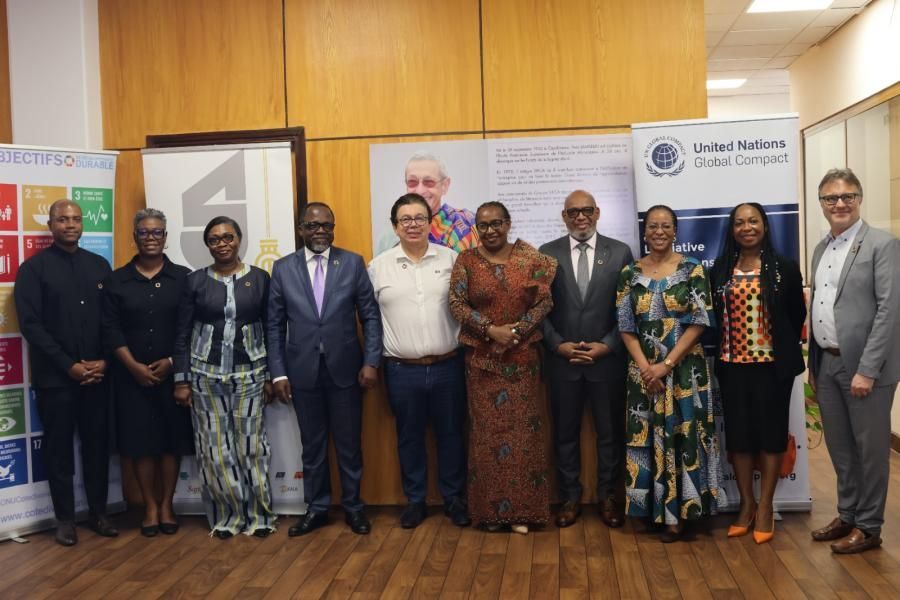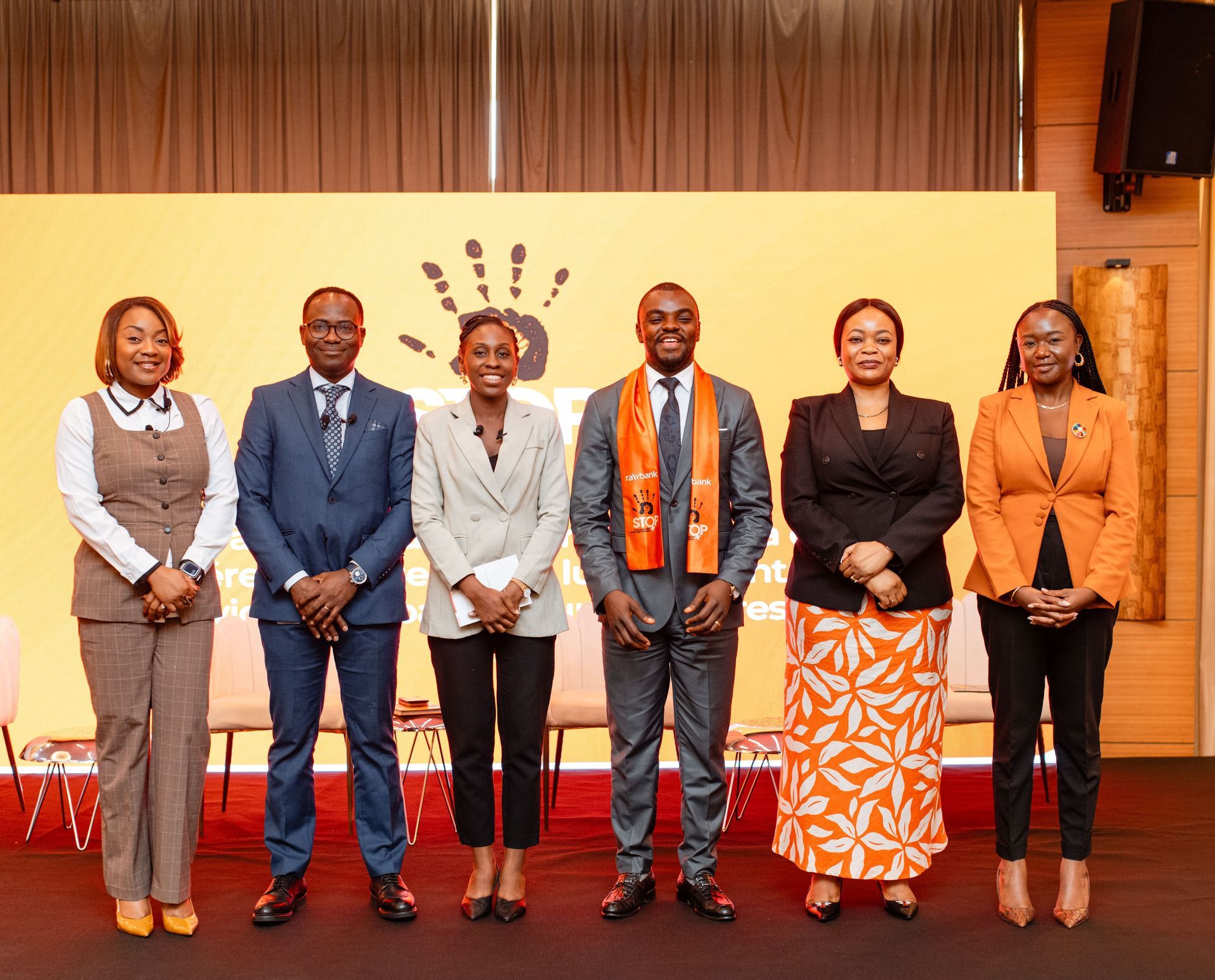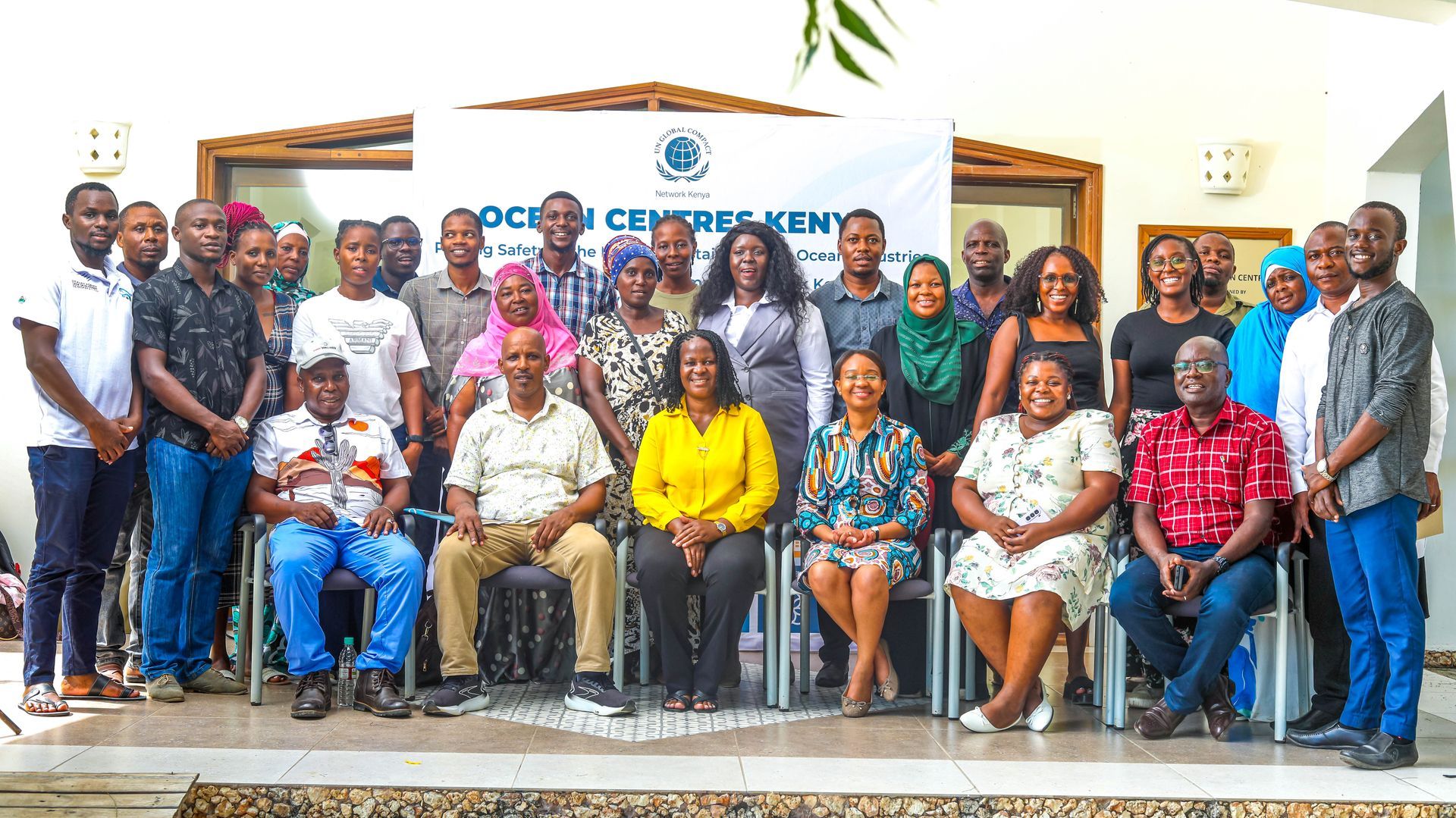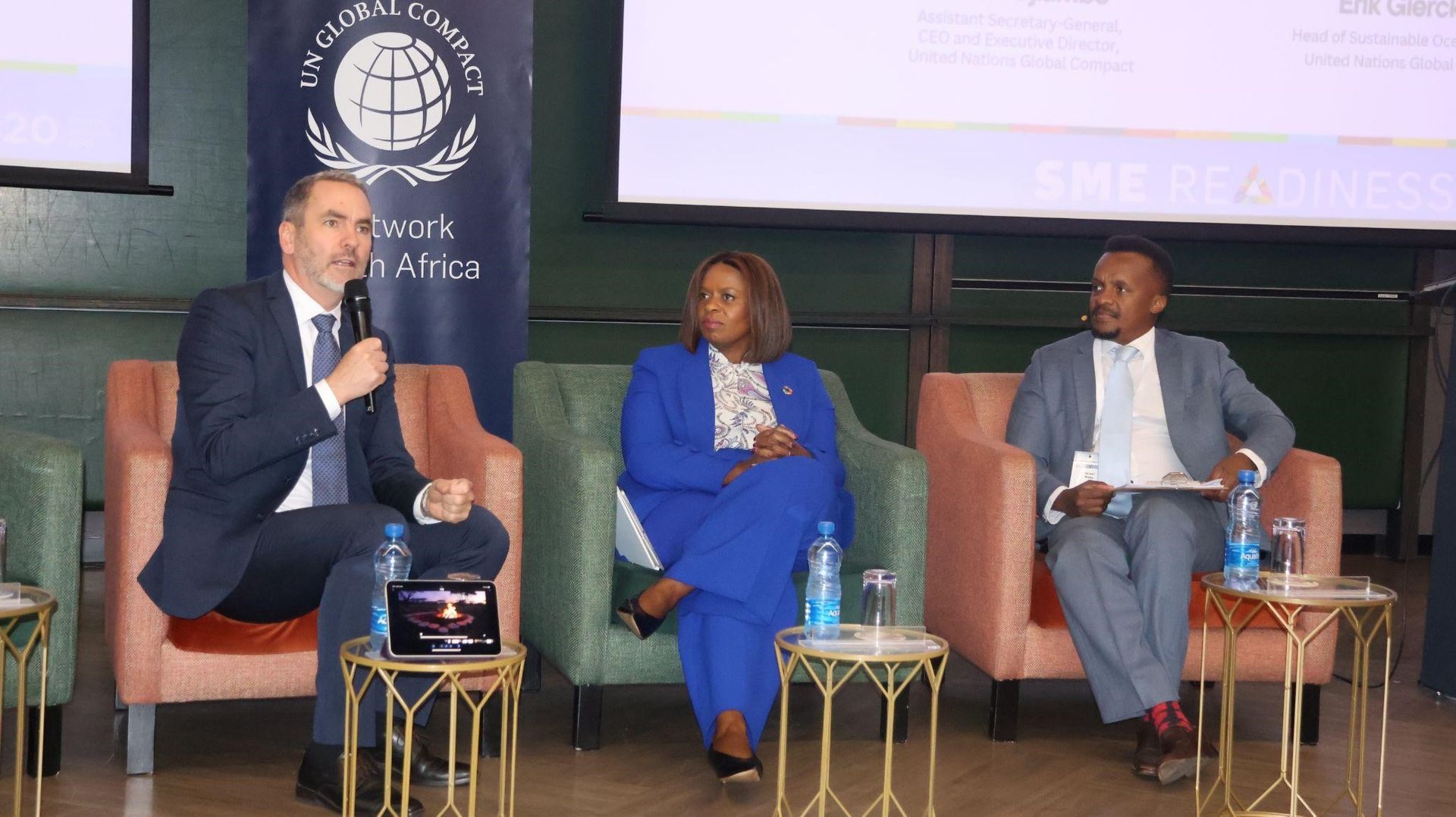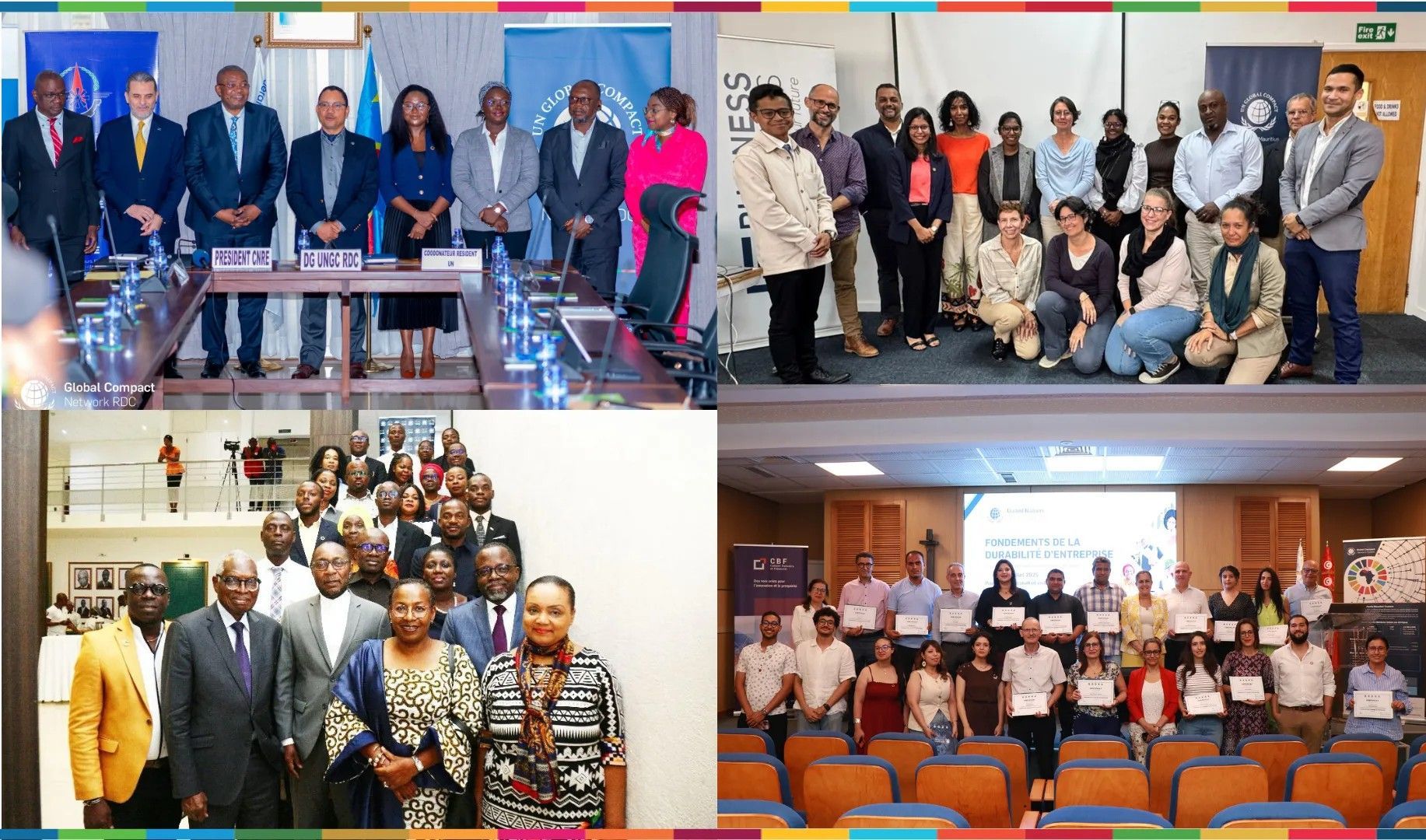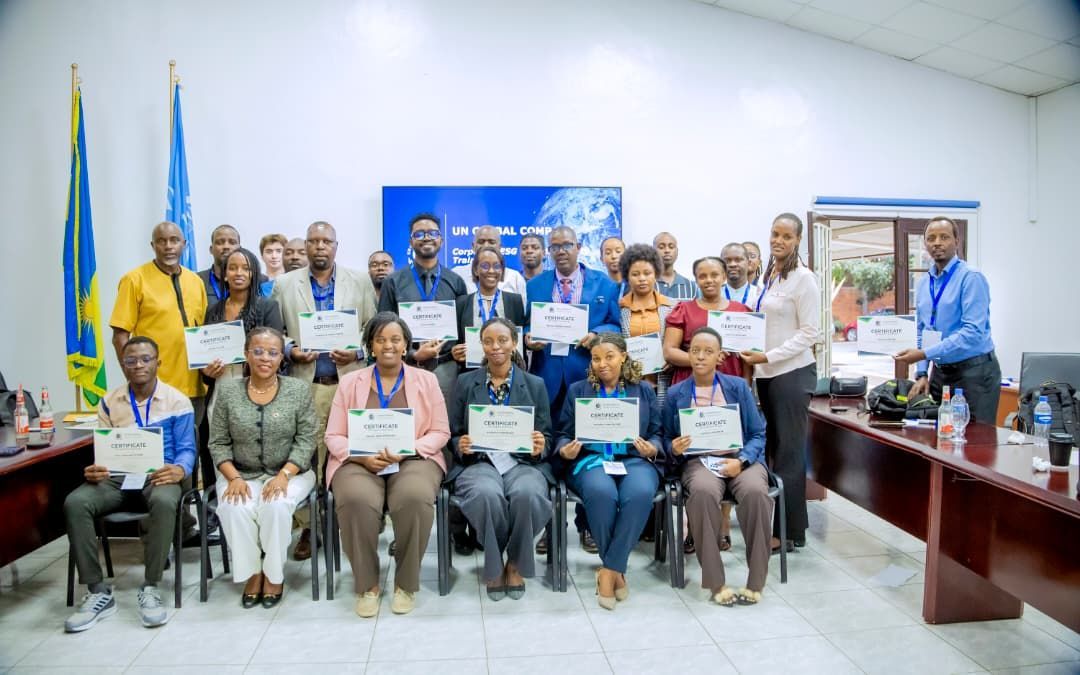UN Global Compact Network Ghana's Summit Sparks Transformation of Food Systems for a Sustainable Future
UN Global Compact Network Ghana's Summit Sparks Transformation of Food Systems for a Sustainable Future
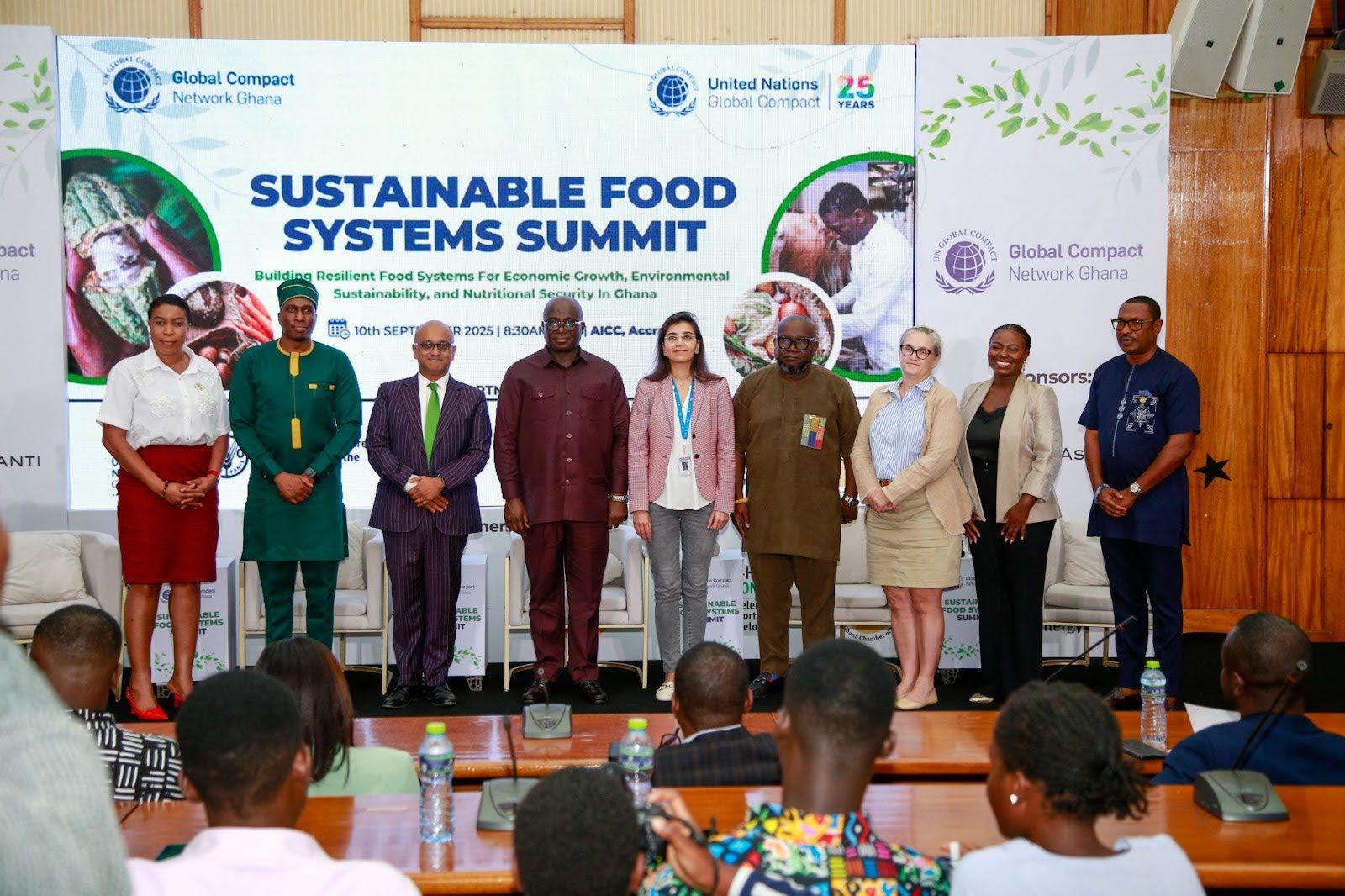
In Sub-Saharan Africa, inadequate food production is still the major cause of food and nutrition insecurity. Traditional food security programs have failed to tackle the more complicated food security and nutritional challenges that exist in the context of climate change, depleted resources, urbanization, rapid population growth, globalization and changing consumption patterns.
Against this backdrop, on September 10, 2025, the UN Global Compact Network Ghana in collaboration with the United Nations Ghana, the Ministry of Food and Agriculture, Ghana, the Food and Agriculture Organization of the United Nations (FAO), the World Food Programme (WFP) and other local partners, organized the Sustainable Food Systems Summit at the Accra International Conference Centre, Ghana.
As part of creating a hub of conversations on transforming Ghana’s food systems for a sustainable future, the Summit brought together more than 135 key stakeholders from across the agricultural value chain, farmers’ associations, agribusiness leaders, policymakers, private sector actors, development partners, and change makers, all united by one vision: resilient, inclusive, and climate-smart food systems.
Among notable attendees at the summit were the Ghanaian Minister of Food and Agriculture, Honorable Eric Opoku, the UN Resident Coordinator - Ghana, Zia Choudhoury, Ms. Priya Gujadhur of the FAO, Ms. Nicole Carn, Deputy Country Director - World Food Programme, and Kenneth Ashigbey – CEO, Ghana Chamber of Mines.
The Minister for Food and Agriculture, Hon. Eric Opoku, who delivered the opening statement, highlighted the paradox of Ghana’s over USD 3 billion annual food import bill despite its vast agricultural potential, coupled with an estimated 30% post-harvest loss due to weak storage, logistics, and processing systems.
“Rising food inflation, which peaked at 61% in 2023, was noted as a major threat to livelihoods and poverty reduction,” Hon. Opoku noted. “In order to address this, the government plans to rehabilitate and expand irrigation systems covering more than 229,000 hectares of farmland. The initiative is expected to boost agricultural productivity significantly and reduce the nation’s reliance on food imports.”
The Summit emphasized three priority areas:
- Policy alignment – embedding nutrition and food security indicators into national frameworks and ensuring coherence across ministries.
- Financing and innovation – mobilizing blended, predictable, and inclusive financing to de- risk agriculture and catalyze investment in resilience.
- Value chain transformation – spotlighting soybeans as a strategic crop for nutrition, climate-smart agriculture, and industrial growth.
Also, key takeaways from the summit included:
- “What gets measured gets done” – Policymakers were encouraged to integrate measurable nutrition and sustainability indicators into development plans.
- Multi-sectoral partnerships are critical, and agriculture alone cannot deliver transformation without links to health, education, trade, and climate policy.
- Financing must shift from one-off grants to systemic solutions—blended finance, risk-sharing facilities, and patient capital for infrastructure, value addition, and SMEs.
- The soybean value chain holds untapped potential to simultaneously drive nutrition, food security, and inclusive economic growth, particularly for women and youth.
According to the FAO, a sustainable food system (SFS) is a food system that delivers food security and nutrition for all in such a way that the economic, social and environmental bases to generate food security and nutrition for future generations are not compromised. This vision is central to the United Nations Sustainable Development Goals (SDGs), which since 2015 have called for transformative changes in agriculture and food systems to end hunger, achieve food security, and improve nutrition by 2030.
Closing the Summit, Tolu Kweku Lacroix, Executive Director of UN Global Compact Network Ghana, emphasized, “This Summit has established a shared agenda: strengthening climate-smart and nutrition-sensitive agriculture, reducing post-harvest losses, empowering women and youth, mobilizing private sector investment, and enhancing cross-sector policy coordination.”
